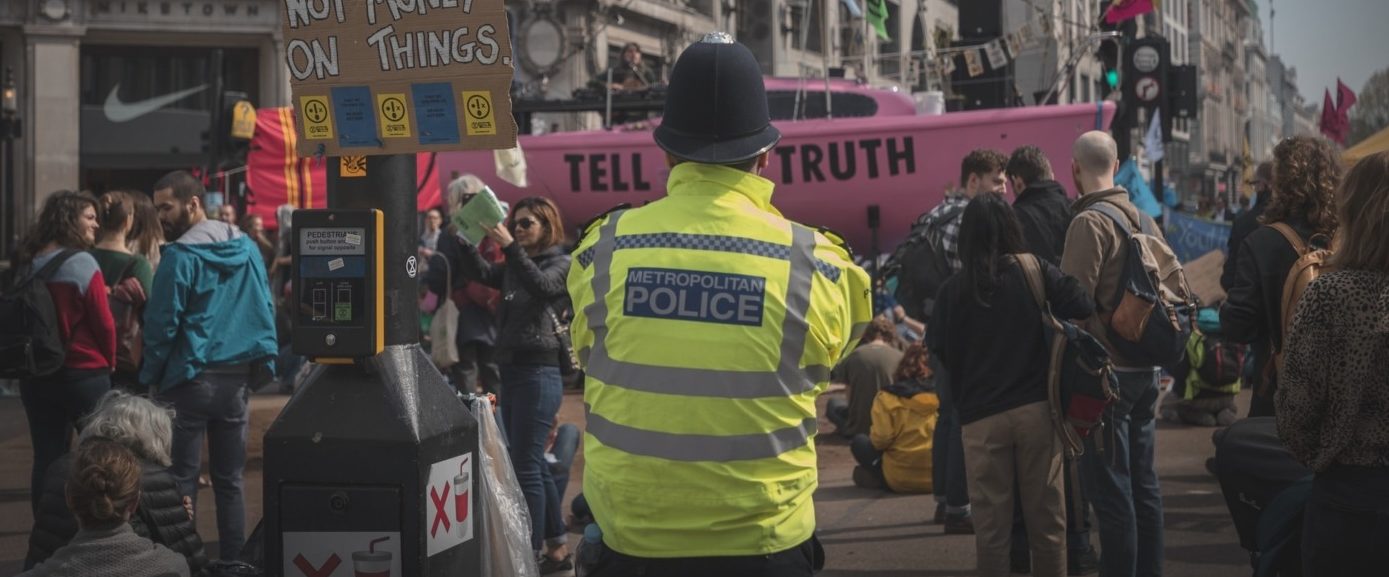Extinction Rebellion is not a risk to the UK, the climate emergency is
Extinction Rebellion, also commonly known as XR, has been included in a safeguarding guide released by counter-terrorism police. The guide warns individuals to look out for young people who neglect to attend school, like those who participated in school strikes against government inaction last year, and those taking part in non-violent action, such as sit-down protests. XR was included in the guide due to having an “anti-establishment philosophy” which “encourages law breaking activities”. Included on the list with Extinction Rebellion were neo-nazi and pro-terrorist groups, including National Action and Al-Muhajiroun- both of which are terrorist groups banned by the UK government.
Launched in 2018, Extinction Rebellion is a global environmental movement and advocacy group that uses nonviolent action to encourage governmental action; they aim to avoid tipping points in the climate system, biodiversity loss, and ecological collapse by targeting governments’ failure to act. The group is heavily inspired by grassroots movements- which use collective action at a local level- like the civil rights movement and Satyagraha. It is a decentralised movement, meaning that organisation is delegated to smaller groups rather than there being one overall authority.
Many of XR’s views are supported by scientific evidence
Although XR has now been withdrawn from the safeguarding guide, Home Secretary Priti Patel defended the decision by saying that the decision must have been made “in terms of risk to the public, security risks, [and] security threats”. Indeed, in some cases, Extinction Rebellion protests have led to violence, although this has usually been little to do with the protesters. In October last year, angry crowds shouted at and threw things at two protesters who were holding up a train line. They were eventually dragged down from the train onto the ground. This is despite the fact that disruption to public transport by XR has been minimal.
While it is unclear why climate change activists are now being labelled as terrorists, XR aren’t the only group to come under fire. Greenpeace, established in 1971 to protect the environment, was also included on counter-terror lists this year. Many protesters argue that it is undemocratic to label the group as ‘extremist’, as it attempts to silence legitimate advocacy groups. John Sauven, who works for Greenpeace, says their organisation’s reputation is being damaged. He further queried: “How can we possibly teach children about the devastation caused by the climate emergency while at the same implying that those trying to stop it are extremists?”
Governmental law defines extremism as a vocal or active opposition to “fundamental values”, such as “democracy, the rule of law, individual liberty, and respect for different beliefs”; it is unclear how the groups outlined above would fall into this definition, other than the fact that they oppose current government policies on the climate and environment. Many of XR’s views are also supported by scientific evidence.
Suggests an Orwellian attempt to control and silence protesters just because they challenge government policy and systems
There are major implications of including a non-violent advocacy group on a counter-terrorism group. As outlined by some members of the group, it suggests an Orwellian attempt to control and silence protesters just because they challenge government policy and systems. Furthermore, it could be argued that the counter-terrorism police are fear-mongering to deter other people from joining the movement. By labelling the group as extremists, XR’s ideas are dismissed by the public as well as the media for being too ‘radical’.
With criticisms of Extinction Rebellion stemming from official forces, it becomes more and more apt to believe they might be motivated by something other than public safety. Perhaps labelling XR as an extremist movement may allow police to take stricter action on demonstrators or even legitimatise violence towards those participating in protests or marches. It could even lead to the group being outlawed, as a majority of groups included in the counter-terrorism guide are. Regardless of what happens, it seems evident that the UK government are not big fans of Extinction Rebellion.

Comments